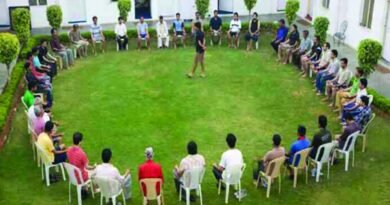Modi’s outreach
The PM has made an effort to engage but he needs to take tangible measures to convince farmers & minorities
One has got to give it to the farmers for forcing the need for an inclusive dialogue on the Government. Their relentless protest demonstrates not only the determination of purpose but an insistence on looking at the fine print of the new farm Acts which, while structurally reforming the agriculture sector, do leave the farmer at the mercy of corporates and disadvantaged enough to avail the benefits of an open market. So much so that Prime Minister Narendra Modi had to distribute Rs 18,000 crore to over nine crore farmers against the backdrop of the unrelenting protests near Delhi. He also interacted with farmers from nine States, looking concerned on the face of it. And a few days ago, by addressing the Aligarh Muslim University (AMU) on its centenary year or engaging with the Visva Bharati University in Bengal, he seemed to have understood the importance of political outreach to his polar opposites. At both the institutions, he seemed to highlight the plurality, inclusiveness and accommodation embedded in our culture and a glorious past, something that his party and minions are committed to overturn and rewrite at the slightest provocation. Modi appeared to make the right moves but these stopped just short of conviction and intent. As it turns out, his outreach was thickly laden with electoral logic. For example, there was no need to highlight that Bengal was the only State to block cash transfers to farmers under the PM-Kisan scheme at a time when protesters in Delhi are looking for some words of reassurance. Worse, he wondered aloud why there were agitations in Bengal against the farm Acts, implying that Chief Minister Mamata Banerjee was backing the protests out of political motivation in maintaining her adversarial pitch against the Centre. It is understandable that the PM was playing up the poll pitch for the Bengal Assembly elections but it seemed terribly out of context and reduced a real understanding of farmers’ fears. The same was true of his speech at the AMU where, by harking back to the institution’s past heritage and the freedom movement, he glossed over the present-day students who have been targeted for civil dissent during the countrywide students’ protests. Or while talking of our Nobel poet-laureate Rabindranath Tagore’s connection to Gujarat, he seemed to ignore the latter’s universal vision that broke down silos, the kind that his politics endorses. Or implying that another Nobel laureate Amartya Sen got an illegal plot of land from the Visva Bharati University.
However, at least the Prime Minister made a gesture that’s still tentative. Sure he cannot ignore his core constituency but because he has the mammoth verdict and rightly owns the stature it gives him, he could use it to sober up passions at least. While appealing to those affected by majoritarianism to set aside ideological differences and narrow politics for national self-reliance, putting the onus on the “others”, couldn’t he have blunted the brazen and brute manifestation of Hindutva? The divisive politics has reaped political dividends for the BJP but has cost the nation deeply, going by the protests against a religion-based citizenship law that is targeted at Muslims, the Delhi riots and now the very worrisome trend of criminalisation of inter-faith marriage in the BJP-ruled States of Uttar Pradesh and Madhya Pradesh. But when he is contradicted by his own party’s State Governments and Ministers reiterating their seriousness about a National Register of Citizens (NRC) in the middle of a pandemic, his vaunted promises ring hollow. Similarly, the Government needs to take care of farmers’ reservations on the new Acts empathetically. It’s not that they are against the open market but that willy-nilly makes pricing competitive and lowers their earnings. In the end, the Government has to give a price guarantee of sorts for all crops as the Minimum Support Price (MSP) has itself become unremunerative given the rising input costs. The Government may have to do some more direct cash transfers to farmers as a transitional measure to a new system. Of course, the small and marginal farmers, the lot of whom the Acts intend to improve, would still be dependent on some sort of mediatory intervention to deal with food majors. These are real concerns. Modi has bucked the trend of most heads of State becoming unpopular with their people. If he has indeed retained his political stock despite the pandemic, it is time for him to do something tangible that would endear him to all sections of the populace.
Source: PTI




